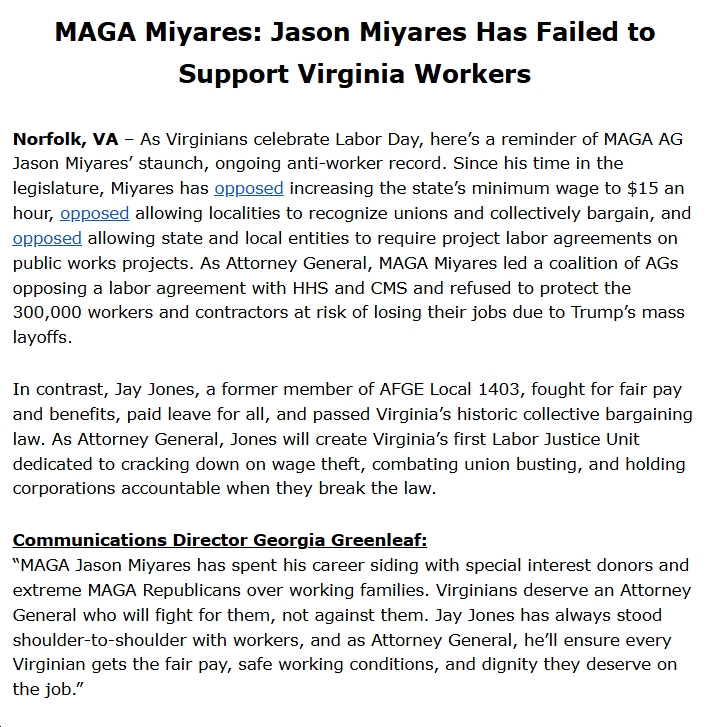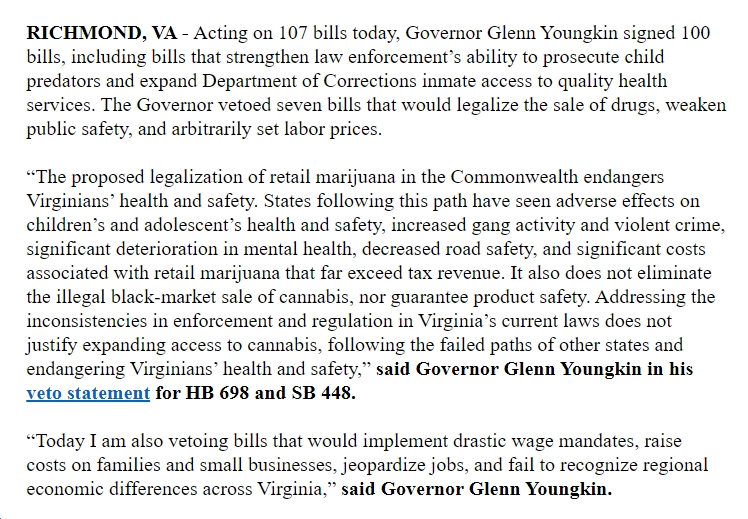From Del. Lee Carter:
Richmond, VA – Delegate-Elect Lee Carter (D-50) made good on his campaign promise, focusing his first three bills for the 2018 legislative session on reforming the Virginia Worker’s Compensation system.
Carter’s promise to make reforms to the system was inspired by his own experience with it when he was hurt on the job in 2015. His injury was a large component of why Carter decided to run for the Virginia House of Delegates.
The following are summaries of the three bills:
- “Anti-retaliation” bill: Under current Virginia law, a worker that has been injured on the job can be legally fired for that injury, if it is a partial reason for their termination.
“Right now in Virginia, it’s perfectly legal for you to be fired for getting hurt on the job, as long as you’re five seconds late, or another infinitesimally small infraction,” said Carter.
If HB 460 is adopted, Virginia employers will no longer be able to use an employee’s filing of a claim for workplace injury as even part of the basis for termination of employment.
- “Timely notice” bill: Under current Virginia law, an employer does not have to make a formal response to a worker’s claim in Virginia for a workplace injury until compelled by the courts.
“The current law leaves Virginia workers vulnerable when trying to determine if their worker’s compensation claim will be approved, or what more information they’ll need to gather in their defense, if the employer denies the claim. It can also draw out the process, and this can be devastating to many Virginia workers that live paycheck to paycheck,” said Carter.
If HB 461 is adopted, once an employee has submitted a worker’s compensation claim, Virginia employers will need to look through the claim and issue a response within 10 days, indicating whether they will approve the claim, deny the claim, or indicate the employee needs to provide additional specified information for the company to make a determination.
- “Out-of-state protection” bill: Under current Virginia law, there is an extremely restrictive three-part test for Virginia workers filing a worker’s compensation claim, for work performed for an employer while the employee was temporarily out of the state.
“If you get hurt on a business trip to California you’re probably going to be alright, but if you get hurt on a business trip to Mississippi, you’re going to have a much harder time,” said Carter of the varied state worker’s compensation statutes that can leave Virginia workers vulnerable.
If HB 462 is adopted, if you perform a majority of your typical work duties in Virginia, or the employer is based in Virginia, and you are hurt out-of-state on a business-related trip, you will now be able to file your worker’s compensation claim. This would not require a worker to file in Virginia if they wanted to file in another relevant jurisdiction.
The full text of the bills can be found on the LIS system here.

![[UPDATED: VA Senate Dems Pass $15/Hour Minimum Wage Bill] VA House Democrats Pass Top Priority, Paid Sick Leave](https://bluevirginia.us/wp-content/uploads/2026/02/housedemspaidsick.jpg)















